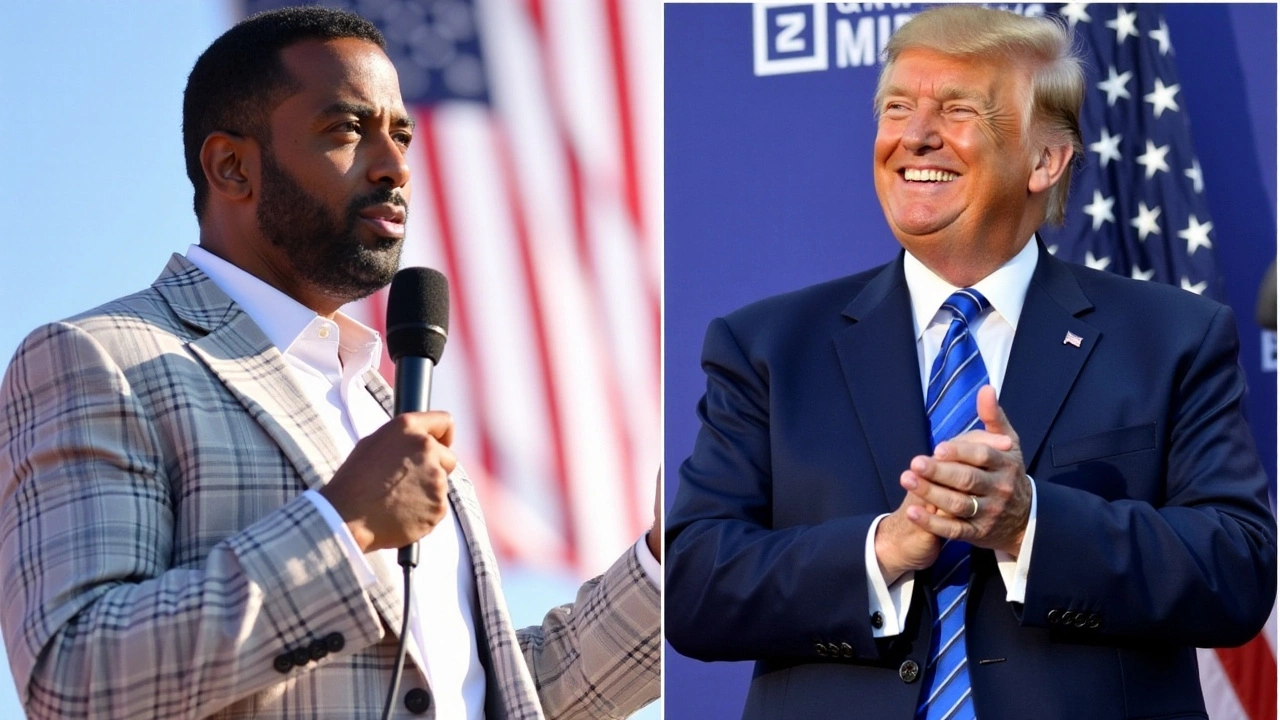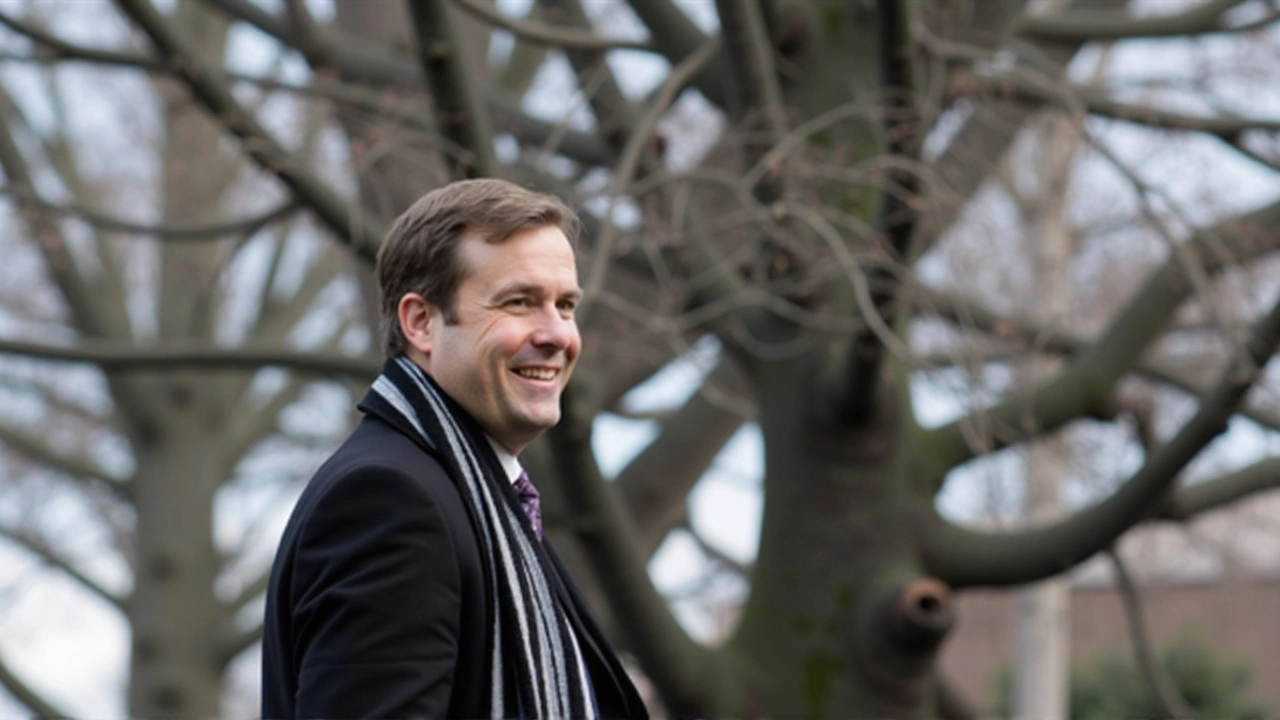John Ratcliffe Nominated for CIA Director: Exploring His Impact on U.S. Intelligence

In Politics
Introduction to John Ratcliffe's Nomination
In a decision that has stirred discussions within political and intelligence circles, President-elect Donald Trump nominated John Ratcliffe to take on the pivotal role of Director of the Central Intelligence Agency (CIA). This announcement, part of the Trump-Vance transition team's broader strategy, positions Ratcliffe as a central figure in steering the agency responsible for foreign intelligence and espionage. Ratcliffe, known for his previous tenure as the Director of National Intelligence (DNI), would be etching his name as a unique leader in U.S. history—should his nomination receive confirmation by the Senate, making him the first to have helmed both the CIA and ODNI. As the former Texas congressman gears up for a potential return to such a critical governmental post, it's important to delve into his past roles, political stance, and the potential impact of his leadership on national security policies.
John Ratcliffe's Political and Professional Journey
John Ratcliffe's political journey began in earnest when he represented Texas' 4th Congressional District, gaining substantial experience on influential committees such as Judiciary, Homeland Security, and Intelligence. These roles furnished him with insights into the intricacies of U.S. national security policies and the operational frameworks of intelligence agencies. His time in Congress laid the foundation for his appointment as DNI in May 2020, a role that placed him at the heart of intelligence reporting and strategizing under Trump's administration. Ratcliffe's strong stance during the impeachment hearings, where he vehemently defended Trump and his robust interrogation style during pivotal hearings like those involving Robert Mueller, earned him both notoriety and admiration. His assertive advocacy for Trump's policies has underscored his staunch allegiance, positioning him as a favored candidate for executive roles within the administration's national security team.
Trump's Confidence in Ratcliffe
The nomination came with effusive praise from Trump, who heralded Ratcliffe as a 'warrior for Truth and Honesty with the American Public,' ensuring his commitment to both national security and constitutional rights. Trump emphasized Ratcliffe's embodiment of the 'PEACE THROUGH STRENGTH' ideology, aligning with Trump's broader security and defense narratives. This endorsement from Trump highlights their deep-rooted alliance, which seems to transcend Ratcliffe's immediate administrative skillset and delve into shared political ethos and strategy. As the appointment advances toward Senate confirmation, this backing from Trump could prove pivotal in galvanizing support from Republican lawmakers, particularly those swayed by Trump's vision for the intelligence community.
Senate Confirmation and Ratcliffe's Support Base
The pathway to John Ratcliffe's appointment as CIA Director hinges significantly on the Senate's approval process. Ratcliffe's previous confirmation as DNI in 2020, albeit narrowly achieved at 49-44, reinforces his ability to maneuver through Senate deliberations. U.S. Rep. Pat Fallon, who succeeded Ratcliffe in Congress, underscored Ratcliffe's aptitude for leadership, citing his effective tenure as DNI and projecting confidence in his capacity to excel as the CIA leader. This confidence is echoed by prominent conservative think-tank, The Heritage Foundation, which Ratcliffe associated with following his DNI stint. Heritage President Dr. Kevin Roberts and Vice President Victoria Coates have both highlighted Ratcliffe's national security expertise, framing his nomination as strategically sound and beneficial for aligning the CIA with the administration's intelligence priorities.
Evaluating Ratcliffe's National Security Experience
John Ratcliffe's tenure as DNI was characterized by navigating the complexities of intelligence reporting and adapting national security strategies amidst rapidly shifting global dynamics. His approach often resonated with Trump's administration goals, emphasizing coordination among intelligence agencies and forefronting intelligence that supports executive policy. The potential transition to CIA Director presents Ratcliffe with a broader canvas to implement strategies that enhance U.S. foreign intelligence capabilities, potentially recalibrating the agency's response to threats and strengthening security protocols. Under his leadership, the CIA might focus on reinforcing alliances with international counterparts while fortifying domestic intelligence endeavors to confront emerging challenges. Ratcliffe's nomination could signify a period of strategic continuity, aligning closely with Trump's broader defense and security initiatives.

The Path Ahead and Potential Challenges
As Ratcliffe's nomination proceeds towards a confirmation phase, potential challenges and discussions loom on the horizon. While his allies bolster his image as an effective leader, critics might question his proximity to Trump and how this relationship influences his potential actions as CIA Director. The evolving geopolitical landscape, coupled with domestic scrutiny, could shape Ratcliffe's approach to leadership, balancing loyalty to Trump's vision with the nuanced operational demands of the CIA. If appointed, Ratcliffe would inherit responsibilities that require deftly managing international espionage, cyber threats, and counterterrorism efforts amidst a rapidly evolving intelligence domain.
In summary, John Ratcliffe's journey from a determined Congressman to a prominent intelligence leader demonstrates his significant influence within U.S. national security. As anticipation builds towards the Senate's verdict, the decision will not only reflect Ratcliffe's credentials but also indicate the directional impetus expected for the CIA under Trump's renewed presidency. Observers and stakeholders alike await with keen interest, reflecting on how Ratcliffe's leadership might shape the future narratives of American intelligence and its role in global security.
Write a comment